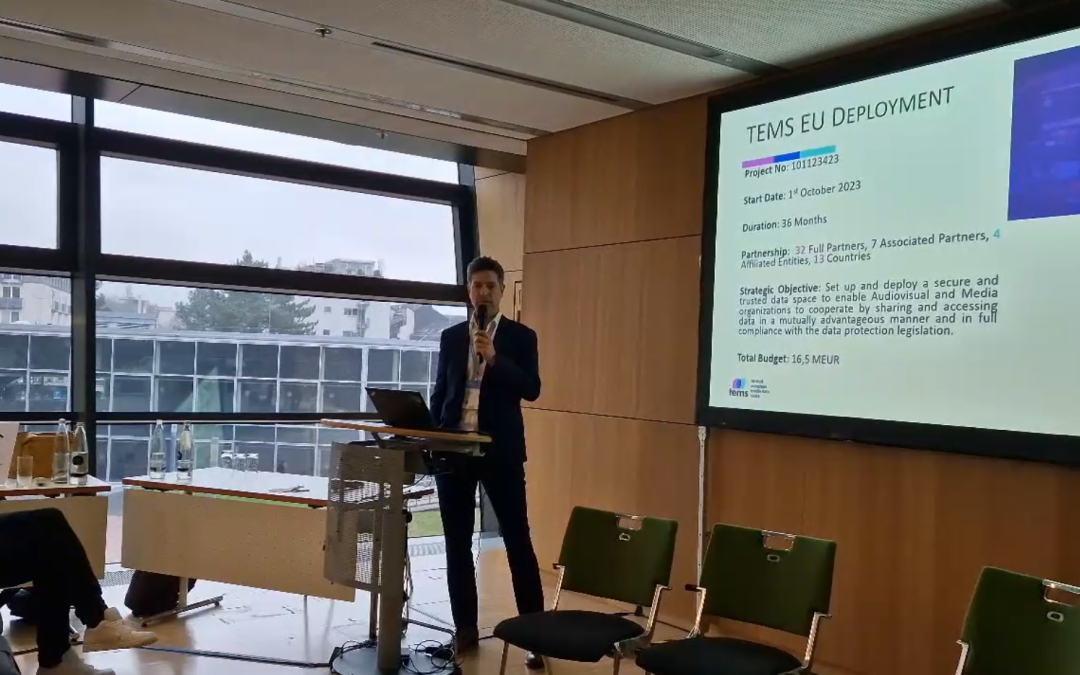
TEMS explains the benefits of data sharing in the media industry at the Data Spaces Symposium 2024
More than 1,000 attendees gathered for three days in Frankfurt to discuss advanced technology solutions for existing and emerging data spaces
Data Spaces Symposium is the world’s largest event on data spaces, organized by the Data Spaces Support Centre (DSSC) and the Data Spaces Business Alliance (DSBA). From March 12 to 14, its second edition took place in Frankfurt, following the success of the first one held in 2023 in The Hague. More than 1,000 people attended the three-day event to hear presentations from a wide range of visionary business leaders, renowned experts, and innovators in the data spaces landscape.
The TEMS presentation took place during the second day of this conference, in the framework of the vertical session “Data, AI and beyond in language, cultural heritage and media, impact on training and skills”. Óscar Rey from Innovalia Association, project coordinator of the TEMS initiative, took the stage to introduce the project to professionals at the forefront of data space innovation and strategy, with the aim of showing the impact that data sharing can have on the competitiveness of European media.
During his speech, Rey spoke about the new business opportunities that data sharing can generate, due to its enormous potential to respond to demands that have arisen in recent years: fact-checking, 3D data for virtual productions, metadata for audiovisual works or audience analysis for content personalization. AI is also part of this disruptive process, especially useful for certain specific aspects, such as the management of intellectual property rights, transcripts and translations, user experience enhancement or categorizing and analyzing textual information.
These tools, accompanied by the necessary investments to guarantee their implementation in an ecosystem where SMEs play a relevant role, would obviously result in direct benefits for the media industry, which would gain in credibility, interoperability, innovation capacity and, therefore, revenue streams. Óscar Rey also emphasized in his presentation a very important aspect for these prospects to become a reality: the collaboration between media companies to implement data driven media value chains trials.
Within the European Media Data Spaces ecosystem there are some platforms already operating and offering services to the European media industry, and the intention is to integrate these platforms within the different trials. Among the eight pilot projects currently underway we can bring up the European Digital Media Observatory (EDMO), which serves as a hub for fact-checkers and stakeholders to collaborate with each other; Arctur, a key project partner in bridging the Media sector with Tourism and Cultural Heritage Data Spaces; or DRIVE, a data-sharing project to help publishers build digital revenue.
We would like to thank everyone who joined us at Frankfurt and to the Data Spaces Symposium for the invitation and for giving us the opportunity to showcase this initiative to a large group of professionals and academics inspired by their will to learn, connect and drive the future of the digital economy. Moreover, this and other initiatives are only possible thanks to the European Data Strategy and the foundational blueprint for common European data spaces offered by the DSSC. The TEMS project is still on track and ready to show all our progress at the next international conferences!
